|
We are pleased to bring you this final UPDATE of the academic year 2023 - 2024.
Associate & Strategic Leader of Teaching & Research Schools (ESW) Roger Pope CBE begins by considering the secret behind the atmosphere of purpose and calm on a recent LSSW Connect Study Tour Visit to Dixons Academy Trust in Leeds and Bradford: "I was struck by how clearly the leaders articulate what they are doing, why they are doing it and how they are doing it. They speak with a confidence and clarity that is inspiring. They have developed systems that work for every aspect of their operation. They check those systems are working. They invest in staff training and growth. And everything is rooted in the transparent vision and values of the Trust and the individual schools." And ends with a rallying cry to end the year - inspiring all school leaders and staff to return energised after a good break this summer. We look back on the 2024 Summer Conference with collaboration at its heart, knowing that some events are worth reliving. We thank, once again, all our speakers, sponsors and of course, the delegates for being with us. “If everyone is moving forward together, then success takes care of itself.” (Henry Ford) Primary and Secondary Teachers of Art recently enjoyed their very own dedicated Devon Art Teachers' Conference with an enriching and engaging agenda, plus inspiration from the Bovey Tracey’s annual Craft Festival. As a thank you to all Governors, but celebrating this one as he prepares to retire, we interview Paul Brooks, Chair of Kingsbridge Community College Governing Body and SWIFT Trust Board who shares his thoughtful insights into education over the past 40 years. With the ever-important issues of attendance, Kingsbridge Research School explains the Education Endowment Foundation’s new guidance on supporting schools with attendance structured around six evidence-informed themes. Another readable feature is from our sponsor SchoolPro TLC who shares their GDPR and Data Protection expertise in understanding the Birmingham Children’s Services Data Breach and the implications and guidance for school and MAT leaders. Our sponsors have been busy too. The foodie pictures say it all as Educatering whets our appetites in showcasing their menu of delightfully nutritious and exciting food in its school year wrap up. Lucky schools. Exeter Supply Partnership understands the importance of professional development for teachers, but appreciates access whilst working as a supply teacher or Teaching Assistant is not always easy. This is why they provide access to FREE courses and webinars to support their Supply Team to keep up-to-date whilst working and to help them to prepare for the next step in their career. ONVU Learning reflects on excellent teachers creating excellent memories and the characteristics of great teachers. If this sounds like something for you, you can meet and find out more about ONVU Learning in a FREE webinar on Thursday 11 July 2024 from 0830 – 0900. Register here Wherever you are, we hope that these final few weeks will be enjoyable and fulfilling for you all. We are not there yet, but the summer break awaits and we wish you the loveliest holiday and thank you for working with us this year.
0 Comments
3/7/2024 0 Comments Excellent Teachers Creating Excellent Memories | Reflections on the Characteristics of Great Teachers with ONVU Learning Why did you become a teacher? Which teachers do you remember? Our sponsor, ONVU Learning thinks deeply about the dynamics of teaching and learning and reflects here on excellent teachers to inspire the next generation of teachers. We all remember that one teacher who was more than an educator. A Mentor, a guide, and a catalyst for personal and intellectual growth. Their passion for their subject matter was infectious, igniting a similar enthusiasm in you. They possessed an uncanny ability to recognise and nurture your individual strengths, encouraging you to pursue your dreams with confidence. Their lessons may have extended beyond textbooks, imparting valuable life skills and wisdom that resonated long after the school bell rang. Through their unwavering support and belief, they instilled a sense of purpose and self-worth, with memories of their kindness, patience and innovative teaching methods remaining a source of inspiration. Perhaps it was that inspiration that led you to teaching. Creating Lasting Impressions Excellent teachers have the unique ability to create lasting, positive memories for their students, shaping their lives in profound ways. As educators, they transcend the traditional role of a subject teacher. Through dedication and enthusiasm, their classrooms are transformed into spaces of inspiration and discovery. They foster a love for learning, ignite passions, and build confidence, leaving an indelible mark on their students. For some, the absence of such teachers in their own education becomes a powerful motivator to be the teacher they never had. These reflections underline a critical truth: inspirational teachers are not only transmitters of knowledge but are pivotal in nurturing well-rounded, motivated individuals who carry their influence long into adulthood. Empowering Teachers for Excellence: Strategies to Create a Supportive, Judgment-Free Environment Empowering teachers to excel requires a clear vision and a nurturing environment that supports their growth without judgment. Schools must foster a culture where teachers feel valued, heard, and encouraged to innovate; which means creating collaborative spaces for sharing best practice, challenges, and successes. By involving teachers in decision-making processes and policy development, schools can cultivate a sense of ownership and commitment. Recognising and celebrating teachers' achievements can significantly boost morale and motivation. Ensuring teachers have access to necessary resources and a supportive administration creates a foundation where they can focus on what they do best: teaching and inspiring students. Tailored Teacher Professional Development: Introducing Practical, Customizable Tools Effective teacher development must be bespoke, in recognising the varying stages of a teacher's career and their unique classroom dynamics. Initial Teacher Training (ITT) and the Early Career Framework (ECF) establish foundational practices and habits. However, further professional development needs to be adaptive, helping experienced teachers maintain good practices whilst responding to new challenges, such as changing student demographics. Practical examples include coaching approaches to fine-tune teaching practices, growing teacher agency to encourage confident, well-chosen risks, and making it standard practice to discuss teaching methods alongside insights from authentic lesson observation feedback. This approach ensures that professional development is not a formality, but a meaningful, growth-oriented process that aligns with the evolving educational landscape. Sustainable Strategies for Teacher and Student Success: Actionable Steps for Schools To sustain and enhance teacher development, schools must implement strategies that ensure continuous growth and competitive advantage. 1. Keep whole school training days focused on vision and policy, rather than granular, practical implementation, allowing for a clear, unified direction. 2. Middle leaders should be equipped to evaluate the impact of actions, moving beyond mere box-ticking to genuine, impactful assessments. 3. Teachers should be provided with the tools to play, practise and perform, and the confidence to know that they will be supported and judged fairly - including fostering an ingrained understanding of their cohort's needs, interests, curriculum demands, and expected outcomes. By embedding these sustainable strategies, schools can create an environment where both teachers and students thrive, ensuring long-term success and a lasting positive impact on the educational community. How is ONVU Learning Supporting Teachers and Schools to Create Lasting Impressions ONVU Learning’s complete 360-degree lesson capture solution helps educators to reflect, collaborate and analyse the entire teaching and learning process. By using 360-degree cameras, your teachers can capture the entire classroom allowing them to review and share clips of best practice from our web-based platform, to improve teaching techniques and empowering teacher autonomy. Schools across the country have been implementing ONVU Learning to enhance their Early Career Framework programmes, to enhance and scale effective Teacher Continuous Professional Development programmes, and ultimately, to improve teaching standards and learning outcomes. Learning is a complex process in which teachers are pivotal. If teachers are to be effective contributors to children’s change in behaviours, attitudes, knowledge and skills then they need a tool that helps them see teaching and learning inside their classroom with clarity and without judgement. By putting the teacher in the driving seat, ONVU Learning allows you to customise your professional development by choosing which lessons to record, choosing what to share and what to keep private, tag and comment on key moments during your lesson and collaborate with colleagues without taking up valuable resource time. To Find Out More
Join ONVU Learning at a FREE webinar on Excellent Teachers Create Excellent Memories on Thursday 11 July 2024 from 0830 – 0900. Hosted by ONVU Learning’s Matt Tiplin and Stella James, you will explore transformative strategies that empower teachers to excel in order to enhance student achievements. You will also look at personalised development plans that combine the best practices of memorable teaching with innovative growth opportunities tailored for teachers. 2/7/2024 0 Comments Data Breach | Implications and Guidance for School and MAT Leaders with SchoolPro TLCOur sponsor SchoolPro TLC shares here their GDPR and Data Protection expertise in understanding the Birmingham Children’s Services Data Breach and the implications and guidance for school and Multi Academy Trust (MAT) leaders. In May 2024, the Information Commissioner’s Office (ICO) issued a reprimand to Birmingham Children’s Trust Community Interest Company (BCTCIC) for an inappropriate disclosure of a child’s personal information. This unfortunate incident underscores the critical importance of robust Data Protection practices, especially when dealing with sensitive data related to children and criminal offences. As leaders in schools and MATs, understanding the implications of this reprimand and implementing key actions can help safeguard your institutions from similar breaches. Overview of the Incident
On 10 November 2022, BCTCIC experienced a significant data breach involving the inclusion of sensitive information about another person in a Child Protection Plan (CP Plan) sent to a family. This breach occurred within the Child Protection and Review (CP&R) department, which routinely handles both personal data relating to children and criminal offence data. The specific incident involved two neighbouring families. Family A had raised concerns about interactions between their child and Child X from Family B. During the formulation of a Child Protection plan, information from a separate strategy meeting with West Midlands Police, containing serious criminal offence allegations against Child X, was inappropriately included and this sensitive data was subsequently disclosed to Family A, resulting in a violation of Data Protection regulations. Key Findings and ICO Reprimand The Information Commissioner's Office (ICO) found that BCTCIC had violated Articles 5(1)(f), 32(1)(b), and 32(2) of the UK General Data Protection Regulation (UK GDPR). Articles that mandate personal data must be processed securely to protect against unauthorised or unlawful processing and accidental loss, destruction, or damage. Several key issues were identified:
Implications for Schools and MATs The ICO have highlighted that Schools and MATs must be vigilant to avoid similar data breaches: 1. Develop Robust Policies and Procedures Ensure that your Data Protection policies include specific, detailed guidance on handling sensitive personal data. This should cover what data is appropriate to share and under what circumstances. 2. Implement Role-Specific Training General Data Protection training is essential, but it should be supplemented with role-specific training. Staff should understand how Data Protection principles apply to their roles within the context of their setting. SchoolPro TLC are developing SEND and Designated Safeguarding Lead-specific Data Protection training to help boost staff confidence when responding to information requests. 3. Conduct Regular Audits and Reviews Regularly review and audit Data Protection practices to identify and mitigate risks. Look at who the school has shared information with, how much and the method for exchange. 4. Regular Records Review Create time to review the records you hold, checking the quality and accuracy. Feedback to staff to support the development of a safer culture within the school. Actions and Recommendations Based on the ICO’s recommendations and the lessons from the BCTCIC incident, there are specific actions for schools and MATs to consider.
Conclusion The reprimand issued to Birmingham Children’s Trust serves as a stark reminder of the importance of robust Data Protection practices, especially when dealing with sensitive information related to children. By understanding the implications of this incident and implementing the recommended actions, schools and MATs can better protect their data, ensure compliance with data protection regulations, and better safeguard their students. As leaders, it is our responsibility to foster both a culture of Data Protection and Child Protection within our settings, by going above and beyond to ensure the safety and privacy of all individuals whose data you handle. Data Protection is Child Protection. By Ben Craig, Director, SchoolPro TLC Ltd  “If everyone is moving forward together, then success takes care of itself.” (Henry Ford) This time last week, it was lift-off for the SWIFT 2024 Summer Conference at the new venue of the Future Skills Centre in Exeter. Hosted by Executive Director, Martin Director and Jen Knowles, Director of Teaching School Hubs, delegates fastened their seatbelts for what was to be a supersonic day. Education South West (ESW) CEO, Matthew Shanks’ welcome set the tone for the conference in considering the current challenges and key themes for schools and leaders - with a call to action for collaboration across schools in the South West. “Our job is to help every single child.” Matthew reflected how alas, the system is not currently built for collaboration due to disincentivizing league tables and a lack of support and funding for children’s services. However, with ESW the lead Trust for the Kingsbridge Teaching School Hub, Matthew echoed the SWIFT ethos of selfless collaboration that helps to make a better society and fulfils our vision of creating high-quality opportunities for staff to learn, develop and connect. So that all children, especially the disadvantaged, achieve the best educational outcomes. After the fantastic first three years as Teaching School Hubs, the statistics are splendid to behold. 3,295 teachers and leaders have engaged in over 80,000 hours of training with SWIFT that importantly, practicably, and hearteningly has a direct impact on the quality of education and lives of young people in South West schools. And the good news is that SWIFT is committed to building on this successful support.  On that stirring note, the first keynote speaker took to the stage. Presenting on “Why nice isn’t working: why relational currency supports positive behaviour,” teacher, behaviour specialist, author, education reformer and advisor, Paul Dix began by sharing his own experience as a 24-year-old teacher. Re-living the case of the humbling home visit to his pupil, Robert; Paul recounted the discovery of his positive notes that Robert had previously crumpled up (and Paul assumed to have been thrown away) and yet were pinned-up on Robert’s bedroom wall, in an otherwise nearly empty home. Heart-rendering. In a talk that was entertaining and energising with visual props, Paul highlighted the importance of relationships being predictable, systematic, consistent and habitual. Think of the primary children who slipped happily into the habit of shaking the hand of their teacher every morning on arrival into class and who were disappointed when she suddenly stopped this hands-on habit. Such was this happy habit, even parents came into school to shake the teacher’s hand as well. Relational practice begins with the easy actions. The positive noticing, in a pure and nuanced way and it is this emotional currency that leads to trusting relationships. “There’s no teacher in the world who doesn’t know the power of positive noticing.” In an endearing peer-to-peer relationship-building story, Paul shared the example of the school who gave all their Year 8 pupils a brown postal label. With echoes of much-loved national treasure, Paddington Bear, the pupils were all invited to write something nice about each other on the label, which they then swapped and tied onto their bag or tie. Instead of teen uneasiness, these positive peer labels stayed visibly tied on for a long time. Get your labels ready, and make a date in your diary on Wednesday 13 November 2024 for Positive Noticing Day to celebrate in your schools and organisations. By looking at the behaviour of adults first, this starts the change. It can be hard work to do the right thing and some people might prefer the easier route. But as Paul reminded us, it is the children who suffer when adults take the easy route and ultimately, scripted intervention does not work. Clear away the bindweed! Remember the leadership gauge of what you are doing, the why and the priorities. Paul invited delegates to consider three behaviours that work with children and the suggestions were uplifting. Smiling, clarity, resetting, listening, curiosity, emotional acceleration. Hands kept popping up. Be ready, respectful and safe and know that consistency is worth fighting for and understand how you define this consistency. Knowing adults will listen and knowing there will be a positive response is essential. In terms of implementing relational practice and bringing the whole school together, Paul compared the tortoise and the hare leaders. The hare leaders could lead a two-minutes pupil spotlight in staff meetings where colleagues with the best knowledge present a 360 view on individual pupils to provide and show how the child learns best and gather strategies from other members of staff. A bank of small spotlights builds up, and is a practical way before going into the classroom to equip all teachers with strategies, even if they do not teach a specific child, it helps to build relational practice across the school. Another top tip was the use of termly Threads that state three rules to start a whole school conversation to encourage commitment from both staff and students, that builds each half term on the previous Thread. In a memorable film clip, Paul showed the young football team standing stoically in the rain and how one-by-one in an image of wraparound love and care, each teacher put their own jacket around the child in front of them to protect them from the rain. Back to the hare and the tortoise, the slower of the duo builds their knowledge before making changes, with high-quality flexible training and then drip feeds strategies each half term. In other words, there is a place for both the hare and tortoise.  SWIFT works with select sponsors who provide a range of educational services to help boost our high-quality professional development offer to schools. As the first of the two conference sponsors, Vice President, Matt Tiplin introduced ONVU Learning: deep thinkers of teaching and learning translated into classroom technology. Teachers are empowered to review their own practice to provide a better methodology by outcome and with his own story as a past teacher, Matt invited the audience to remember a good teacher from their own life. Find out more about ONVU Learning at the FREE Excellent Teachers Create Excellent Memories webinar on Thursday 11 July 2024 from 0830 – 0900.  Delegates could then choose one of two morning breakout sessions. Associate Professor at the University of Warwick, Institute for Employment Research (IER) and Founding Director of CareerChat (UK) Ltd, Deirdre Hughes OBE led the session on “Leading with Vision: transforming education for tomorrow’s workforce.” Leadership, is an opportunity to make a difference as transformational leadership. Even if there is no single way to transform the educational system, it is a line of sight to work. Otherwise, divisions can widen. Deirdre encouraged leaders to find the value in understanding the relevance of education in our fast-changing world of work with spiralling issues, such as multiculturalism and wellbeing. Find personal development for decisions and pathways and changing attitudes to the workforce for life-long learning and ways to inspire amidst the uncertainty and change. Learn collaboratively with a commitment to projects and how to develop skills for the future. Consider changes to relaxing the curriculum to foster flexibility and see the relevance of learning. With her background expertise in career guidance, Deirdre noted the value of rooting career development into the curriculum and bringing employers into the classroom. Education is no longer only about didactic teaching; but rather about learning through collaborative, experimental, and community-based projects that address issues about which students care deeply. There is a need for places and spaces where parents see the relevance and want to help the children in their care and to personalise the learning experience with digital tech. But what can AI do for us to help us to do together? “The need for education is to prioritise what it means to be human.” Find out about CareerChat (uk) at the FREE Intelligence Revolution and How We Can Help Young People Prepare for a Transformed World of Work webinar on Thursday 4 July 2024 from 1400 – 1530.  Former Chair of Children and Young People’s Mental Health Coalition, and author of “The Mentally Healthy Schools Workbook,” Dr Pooky Knightsmith led the other breakout session on “A Whole School Approach to Mental Health.” Pooky outlined the following six areas of focus in schools with lots of helpful tips and invited the audience to consider where they fit on a scale of 1-10: 1. Staff are Happy and Healthy If schools do not get it right for staff, it is challenging to get it right for children and community. Leaders are role models and look after themselves first as children learn from what they see adults seeing and doing and sustainable change must have staff at its heart. Happy staff feel heard: their opinions matter, whatever their background and diversity. Happy staff are mentally and physically healthy. Think about small changes to ensure staff get fresh air, access to healthy food, have time to eat. Think how you acknowledge teachers' workload. Mastery is every member of staff turning up to do their job and do it well, which in turns supports their wellbeing. Passion will make the difference in our job and help to connect with colleagues. Look beyond Ofsted and ticking boxes. 2. Our Setting Feels Safe and Welcoming The biggest difference to support a child is a calm adult. Meet children with a smile. Walk through your school in the shoes of a stranger and be honest about all the things you see/feel/hear/smell. Children need to know their school is safe place. Make your school a calm environment that meets the needs of neuro-divergent children. Be predictable. Meet the needs of all children and look out for the quiet students too. Be brave to share when things do not go quite right. Be an authentic and brave leader. 3. Every Learner Feels Heard Think how you hear the quiet voices and the angry voices. Think about inclusion and diversity and any groups who are missed out. Think how you listen and how to help those children who are reluctant to put their hands up. 4. We Recognise and Support Our Most Vulnerable Learners Work with the child, not for them. Hear their ideas and think how you can support them. Quality first teaching. Think how you get your classroom to be engaging, exciting and accessible for all learners and what universal approaches can be in place. All staff ‘keep a child in mind’ on rotation and ensure each child has at least one trusted adult. Let them choose and be led by them. 5. Families Positively Engage Parenting is hard. Have high expectations of parents and if they do not live up to them, question what we are doing that is letting them down. Make sure you use their time well. Be approachable: see parents as people and humans. Use their names, ask connecting questions, share good news with homes not used to hearing it. Think what you can do tomorrow to make a difference. 6. Help is Sought When Needed Show children there are no barriers. Celebrate and role model help -seeking and problem solving.  Educational journalist, former teacher, and co-founder of Teacher Tapp, Laura McInerney presented the next keynote on “Education Trends.” It was Laura’s form tutor and Teacher of French, Miss Watson who inspired her to become a teacher; noting that the best teacher gets you an A*, even when you do not necessarily like the subject. It was Miss Watson who brought a newspaper article into school on Laura’s favourite author, Terry Pratchett and her positive noticing made Laura want to be a Miss Watson - and she has followed her example ever since in always wearing a jacket. Ten years ago, Laura’s yellow jacket (plus yellow six-inch heels) had a special outing when she was taken to court by Michael Gove and Dominic Cummings for being "vexatious" about a Freedom of Information Act request on the hot topic of free schools. (A longer and highly entertaining court case story cut short, it ended well for Laura). Teacher Tapp came about from Laura’s editorials in Schools Week based on discussions on a minority of teachers and schools. In 2017, Laura combined forces with Professor Becky Allen who wanted to survey teachers to gather data and the dynamic duo created the highly popular and successful Teacher Tapp. Signed-up teachers are sent daily questions that gather data and help to stop misinformation and spot trends. One of the most controversial questions, would you believe, is whether the school provides free tea, coffee and milk. Turning to another popular conversation topic for us all, the weather, Laura related her own experiences of living in Michigan, part of Tornado Alley. Unlike the UK, where the weather stops play, and people get angry, in the USA, everyone stays at home and does not get angry. The same could be said of reactions to education policy. When the weather turns stormy, we need to change the response, and seek shelter until it has passed. There is no point shouting! With her evident instincts for spotting trends, Laura considered some of the big challenges in education with simple causes. Consider recruitment and retention as a familiar educational trend. Teaching is not any less good, but there are basic challenges. Fewer 22-year-olds are joining the profession, and are not offsetting those exiting the workforce. Hence lots of squeezing on teacher numbers. Consider the high number of 12 – 13-year-olds coming through to secondary, and increasing pressures on schools with increasing behaviour issues and levels of complexity. Whereas at primary, pupil numbers are falling over the next 10 years. The recruitment of Teaching Assistants, Receptionists and other administrative staff needs a re-think due to societal progress. To date, these low-paying roles have been taken by women who needed term-time work. But as the employment market is changing, this trend is also changing as there is more career choice. Vexatious complaints about schools are rising because there are more children, medical advances, Education, Health and Care Plans (EHCPs) have been de-stigmatised and Local Authorities have been given responsibility for 19 – 25-year-olds. There has been the shift in parental expectations from this educated parent group with a louder outcry. Schools cannot change this, but need to have the response and robust communications and complaints processes in place. Looking to the future, Laura looked to the past and reflected on former Education Secretary, George Tomlinson in post after World War II from 1948 and 1951. Facing bombed schools, a high baby boom in 1946 and no university graduates in his inbox, he made the decision to raise the school leaving age. It was considered outrageous. Not least from an Education Secretary who had not attended secondary school. However, it was a timely reminder to us all with the shared purpose to provide an education for all children and young people. The metaphorical tornadoes are coming, and it is for schools to try and work out the response. After that insightful weather warning, SWIFT Delivery Partner at Tarka Trust, Andy Ogden introduced the benefits of SWIFT Membership and highlighted the value of professional development as an investment in staff and the school. Further to the questionnaire to schools at the end of last year, in the next school year, new programmes on offer will be directly related to feedback from colleagues. New Professional Communities will be an opportunity for teachers to access a network in their phase/subject to support their development. Paul Dix and Tara Ellie will also be leading a session on “When the Adults Change – Behaviours Change.”  Looking to support teacher recruitment within the South West, this year, SWIFT has been working with Exeter Consortium/South West Teacher Training, Plymouth Marjon University, SWIFT Teacher Training and the University of Exeter on an Initial Teacher Training (ITT) Area Strategy. The initiative requires all Teaching School Hubs (TSHs) to deliver new strategic roles to support local ITT delivery across their area as an important regional role working with schools and accredited ITT providers to understand the local market, context and challenges. TSHs can also offer information and support to schools who wish to engage in ITT for the first time or to increase their engagement in ITT. Led by the ITT Strategy Team, Andy Ogden, Fiona Bosley and Matthew Wharf who are working together to develop a collaborative ITT Strategy to support the next generation of teachers. This year SWIFT has been evolving our Diversity, Equity and Inclusion (DEI) endeavours so that it is intentional and integral to all that we do. Further to an advert to schools and partners earlier in the year appealing for volunteers from all backgrounds who wished to connect their experience and enthusiasm for DEI, the Diversity, Equity and Inclusion Partnership Group was born. Krisha Gandhi, Caroline Leigh and Tom Pether attended from the Group and shared how their work is shaping up.  The trio shared their own stories as a person of colour, a working mother and a white middle class male and encouraged the audience to think about their own school cultures and any unconscious bias. Through their Theory of Change the Group intend to share best practice and research, provide relevant and inclusive training and proactively listen to diverse viewpoints across our region to foster a sense of belonging that will be felt by our communities and there will be supportive connections, sustainable choices and opportunities for all. If you would like to find out more and/or get involved, the Diversity, Equity and Inclusion Partnership Group would like to hear from you. Our very own Roger Dimbleby (Pope) led Question Time with questions including what priorities would panellists propose for the new Education Secretary on Friday 5 July 2024; what would creativity in the curriculum look like, and whether there is a future for written exams (expanded to writing in schools). The final question: What gives you optimism for the future of education, certainly maintained the momentum of the conference with panellists celebrating schools and Trusts coming together to work through challenges, schools as relational places, overcommunicating the positives messages, sharing joy, talking to families and believing in staff who care. Continuing the caring theme, second conference sponsor, Goosemoor Educatering, Head of Educatering, Rob Stevens whet our appetites for the lunch feast that was the follow with an introduction to their bespoke food service for schools. Rob told how he was leading an onboarding session at a school and a child asked her mother if the food tasting was free. Speaking from the heart, Rob shared his pride in how good food makes a difference to all families and knowing children are going home “with full bellies.” Not dissimilarly, conference delegates were to go home having eaten a delicious lunch and we are grateful to Goosemoor Educatering for a feast.  The first of the afternoon breakout sessions was led by Chief Executive, Paul James and Director of Inclusion, Katherine Walsh at the River Learning Trust on “Leading Inclusion: What works?” The River Learning Trust spans big secondary schools to small primary schools in a high pupil premium area with complex learning and disability needs. The Trust have aligned autonomy, but are not “a cookie cutter Trust” as that would not be a good fit for the diversity of their schools. Paul's first top tip would be the immediate appointment of a Director of Inclusion as the impact for their Trust over three years has been immense, and working on six key areas.  An increasing number of children have special needs. 52% who have EHCPs are in mainstream education, and year-on-year there is a 1% increase of children with SEND in mainstream schools. This brings inevitable challenges. It is important firstly, to boost staff confidence and to support teachers to develop this confidence and secondly, to distribute leadership as the SENDCO cannot be the font of all knowledge. Rather than the SENCO leading all parent meetings, the Form Tutors can also lead and who has a holistic overview of the child and consider how Teaching Assistants are deployed. The Trust have an Inclusion Strategy that is built on knowing schools well and understanding the school context. The Education Endowment Foundation makes the following five key recommendations to meet the needs of children with SEND: 1. Create a positive and supportive environment for all pupils without exception. 2. Build an ongoing, holistic understanding of your pupils and their needs. 3. Ensure all pupils have access to high quality teaching. 4. Complement high quality teaching with carefully selected small-group and one-to-one interventions. 5. Work effectively with Teaching Assistants. There is no magic SENDCO tree. We have to make it a motivating, engaging and wonderful job as a role that can make a huge difference. SENDCOS can move into Headship as SEND runs through all we do.
Be prepared to do things differently. Walk into lessons and think ‘which child is this lesson not working for.’  The second afternoon breakout session was led by CEO of The Woodland Academy Trust, Nav Sanghara on “The Art of Compassionate Leadership.” “It is important to be a kind leader. But it is also important to focus on execution and do hard things. This is about how to do hard things in a human way.” (Raasmus Houggard) In a talk that was infused with wise and wonderful mantras, Nav considered what compassionate leadership looks like. Leaders need to be kind to themselves in the first instance so that they bring energy into their leadership. There is value in knowing and overcommunicating your purpose and redefining and re-evaluating this purpose. With a calm tried and tested wisdom, Nav encouraged leaders to have a core principle and to live by your values that drives actions and decision-making and connects with your organisation. Model these values to children and staff. “Who we are is who we lead.” Psychologically safe teams have real and open conversations. Build one culture and trust together with equity and collaboration and understand the shared vision as a promise to staff and children. It is not always possible to be excited and energised, but good habits can help to live life better. Challenge is to be celebrated and accepted and establish good structures and systems to provide time to pause and respond. As a clarion call for the conference, Nav highlighted how true belonging is where space is created to come as you are and celebrating others to do the same and to see the good in others in your community. To demonstrate a living example of compassionate leadership, Nav shared a video from the School Under the Bridge in Delhi founded by Rajesh Kumar for children from poor families who cannot afford to send them to school. Seeing is believing.  The final keynote speaker was to end the conference on a moving high. For nine years Chris Lubbe was Nelson Mandela’s bodyguard after a chance meeting and a five-minute interview, followed by a gruelling six months training with the SAS. Speaking on “My Journey from Apartheid to Truth and Reconciliation,” the audience listened intently as Chris shared his first-hand story of working closely with the revered Nelson Mandela. It was a way for us to feel close to the brave leader who devoted his life to bring apartheid to an end in 1994. Chris spoke with a heart-stopping serenity bringing to life the Nelson who did not believe in black and white; who showed no anger for his imprisonment and maltreatment; but with an enduring charisma and belief in forgiveness as the key to freedom, he reached out to bring everyone together. As his boss and mentor, Chris recounted how Nelson once told him to write down all the angry things in his heart and then told him to put the pieces of paper onto the fire to burn. Describing his own upbringing in a shanty town, finding thrown-away books to read in the local dump, the two-tier education system and segregated beaches with demeaning signage to match. The stories flowed with a serenity that comes from an inner peace perhaps, and the courageous re-telling. Yet the horrors of the police still sent shivers down our spines. Eight-year-old Chris witnessed the shocking treatment of his diabetic mother taken ill on the bus and pushed off a WHITES ONLY bench by the police that led to three months in hospital in a coma and a long recovery. As a child, Chris bought a map of the world and once a month he wrote to world leaders to ask for their help – including our very own late Queen. Chris was angry, but wanted to do something to inspire peaceful change. As a young man, alongside anti-apartheid and human rights activist, Archbishop Desmond Tutu, Chris stood tall as a peaceful protester, even when it led to arrests and imprisonment and torture. Terrible times. Fast forward to working for Nelson, there were however, moments of glamour. Chris met many celebrities during his time with Nelson – including the Spice Girls who were most miffed when Chris pretended not to know who they were (on the advice of his boss!). But it was at a dinner with the Queen that reminded me of many of the values shared at the conference of hope, compassion and collaboration. A silver platter was presented to Chris. Inside, the envelope was another envelope and inside that envelope was Chris's letter to the Queen that he had written as a boy. A faithful letter writer, the Queen had replied to him, as well as writing regularly to other world leaders for their support. The South African authorities had obviously intercepted her reply to Chris that he never received until that grateful moment all those years later. To a standing ovation, Chris ended the 2024 Summer Conference on a note of hope, forgiveness and togetherness. Nelson Mandela used to say that words are important. But with his humour and humility, like toothpaste, he said, you cannot put them back into the tube. So, choose your words carefully. “We must never remain silent.” Yet words fail me to convey how uplifting it was to be present in that moment.  To echo the warmth that enthused our SWIFT 2024 Summer Conference, we thank all our speakers for their thoughtful presentations and for bringing a meaningful momentum. We also thank our delegates for making time and for sharing in the event with us. A grateful thank you to our sponsors and exhibitors: BCR Associates, CiCI Empowering Careers, Goosemoor Educatering, InVentry, Nasen, ONVU Learning and PHP Law for attending the day and spending time speaking to our delegates about their products and services that add value to schools and thank you to Conferences Southwest for their organisation. Finally, we thank Mark Drew and Robin Scott from our partner, Exeter Consortium Schools' Alliance, for their excellent conference administration and making it all work so well. Report by Jude Owens, SWIFT Executive Assistant
It is the penultimate UPDATE newsletter for this academic year 2023 - 2024 and we hope that there will be something of interest for you in this June issue.
Associate & Strategic Leader of Teaching & Research Schools (ESW) Roger Pope CBE gets into TikTok and the #WorkTok trend that leads to thoughts on today's workforce with reference to Professor Thomas Roulet at the Cambridge Judge Business School: "He argues that what has changed is not a willingness to work hard, but rather what we now ask from work. Our work has become a more significant part of our lives. The demands on younger generations are greater than those on older generations. They are asked to give more - and so they ask for more in return." As we will soon have completed our first three years as Teaching School Hubs, we tot up the numbers of colleagues who have engaged in over 80,000 hours of training with SWIFT and muse on the direct impact on the quality of education and lives of young people in South West schools. We also share some of the benefits from our recent wellbeing in the workplace training with ACAS. Our interviewees this time are Krisha Gandhi of Cranbrook Education Campus and Tom Pether of East Allington Primary School and also valued co-Chairs of the SWIFT Diversity, Equity and Inclusion Partnership Group. Kingsbridge Research School enlighten us with The Education Endowment Foundation’s new and updated Guide to Effective Implementation and highlight the changes. Understanding that Health and Safety is a fact of a life and practical awareness is essential for schools, our sponsor SchoolPro TLC has recently added SchoolPro Safety to its arsenal of services to schools and you can find out more about their services. Other sponsor news. ONVU Learning considers whether cameras in the classroom means Big Brother is watching you (spoiler alert - no! It is much more exciting in the 21st Century). Remember, you can meet ONVU Learning in a FREE Excellent Teachers Create Excellent Memories Webinar on Thursday 11 July 2024 from 0830 – 0900 and also at our Summer Conference on Thursday 13 June 2024. Educatering have been busy showcasing their food and bespoke menu service at conferences across the South West and bring more enticing foodie delights that are enjoyed by many children, young people and staff in school across the South West - and beyond. You will also meet them at the Summer Conference and feast on their food. Exeter Supply Partnership provides some super-helpful-positive guidance on how to be a Supply Friendly School. It makes sense. See how many your school can tick off. As always, we wish you a rewarding final half term and thank you for working with us. With the Summer Term well underway and a Bank Holiday afoot, we are pleased to bring you this May issue of UPDATE.
Associate & Strategic Leader of Teaching & Research Schools (ESW) Roger Pope CBE opens with thoughts on the different contexts for teachers, doctors and surgeons: "Think of the complexity of a school, where in a class, 30 people are all interacting with one another, or a school where hundreds are interacting. Factor in the added complexity of the family and friendships context. The fact that every child learns slightly – or even hugely – differently, brings an infinitely varied range of previous learning and experience to any given moment in a lesson, an infinite range of emotional responses and is growing and changing by the day…hour…minute. Add in the complementary complexity of the teacher" Read some of the highlights from the The MaternityTeacher PaternityTeacher Project and WomenEd The Mother of All Pay Gaps Conference and the Summer Term Estates Management Professional Community. Newly appointed Regional Lead for the South West for Whole School SEND, Emma Vyvyan Find shares some of her good intentions in our interview and their professional development offer to support you and your children and young people. Helen Thorneycroft from the Kingsbridge Research School guides on teachers emphasising the ‘Why’ while modelling: “Teacher discussions that allow students to elaborate on their ideas or their methods, to reason out their thinking and question their strategies, have been associated with progress measured in the form of improved test scores.” Sensitive to staff data sharing in mental health emergencies, data experts SchoolPro TLC outline essential guidance based on recent updates from the Information Commissioner’s Office (ICO) and provides some key takeaways for you. Our other sponsors provide details of their services. Educatering awakens appetites with new menus this Summer Term and photos to prove it and also prove their local credentials with supplier appreciation for their valued partnership with Dartmoor Farmers, who have been farming the land for thousands of years and who provide beef and lamb for school lunches. ONVU Learning considers the merits of teacher-led continuing professional development and championing autonomy in professional development and challenges traditional professional development models. You can meet ONVU Learning in a FREE Excellent Teachers Create Excellent Memories Webinar on Thursday 11 July 2024 from 0830 – 0900 and at our Summer Conference on Thursday 13 June 2024. And Exeter Supply Partnership Teacher provides top tips for getting into primary supply teaching with their professional support and care. "There are many supply teaching agencies out there, so you need to find the one that suits you and your needs best." We wish you a fulfilling remainder of this term and a lovely Bank Holiday weekend. World Water Day | Friday 22 March 2024 | Vanishing Sea The theme of this year's World Water Day is ‘Water for Peace’, and focuses on the critical role water plays in the stability and prosperity of the world. On Wednesday 20 and Thursday 21 March 2024, our sponsor, Lyfta is offering FREE live lessons to bring the world into your classroom (see details below). Travel (virtually) to Jordan and spend time with farmer, Hassan as he battles the decline of the Dead Sea with the looming threat of sinkholes all around his farmlands. You will also be able to take a wider look at the issues of water security in a region affected by historical and ongoing conflict and learn why the River Jordan is special to half of humanity. Booking
Complete the booking form below to select one of the following time slots:
If you have yet to sign-up for a Lyfta subscription, you can set up a starter account on the link below, which will allow you to access supporting resources ready for the live lesson. 1/2/2024 0 Comments Clarity about Sending Home Flyers for Third-Party Organisations from SchoolPro TLCAs part of their experience within the education sector, our sponsor SchoolPro TLC provides the role of Data Protection Officer (DPO) as a service for schools. The SchoolPro Team have been receiving a number of queries from schools about the issue of sending home flyers for third-party organisations by email or post. See below for their updated guidance on sending out communications from third-party organisations to parents. The team are able to draw on their knowledge as former school leaders, as well as their DPO expertise. Your school, for example, might be thinking about sending home a communication about local community events or third-party activity providers. Email is often used by schools for this, although SchoolPro TLC have reservations due to email being subject to Privacy and Electronic Communications Regulations (PECR) and additional consent requirements. Here are the various implications of each option for sending communication home and what requirement you should meet: Postal Leaflets in School Bags The process for sending postal leaflets via school bags is not subject to the privacy and electronic communications regulations (PECR), which means consent is not required. The school can rely on a Legitimate Interests lawful basis and perform a Legitimate Interests Assessment (LIA) for the overall practice of sending out these mailings. It is crucial that parents are informed about this process and have the clear option to opt-out. The school needs to ensure that parents are aware of their rights and the school’s processing activities through clear communication, such as a statement in a parent newsletter. This approach negates the need for separate LIAs for each third-party organisation's materials being sent out. In order to notify parents about this processing, the school could add the following into a parent newsletter (or similar) – words to the effect of: "we will occasionally send home flyers from trusted third parties such as the local authority in pupil bags. This is to make you aware of events, activities, services and products that we think may be of interest to you or your family. Please let us know if you object to this and we will ensure that you don’t receive this information.” Electronic Communication (including Email) There are two distinct categories regarding electronic communication: 1. Direct Marketing Messages These include communications where a paid service is being offered, or there is fundraising or similar activities involved. Examples include services like school photography or extracurricular activities run by external companies that require payment. These types of messages require prior opt-in consent from the recipients, and it must be straightforward for them to withdraw consent at any time. It is important to ensure that this consent is specific, informed, and unambiguous. The school should not use opt-out forms for these types of communications; instead, an explicit opt-in mechanism should be in place. 2. Promotional Messages Not Classified as Direct Marketing This category includes communications that can be considered part of the school's or trust's legal function as a public body and do not have a paid-for element. Examples might include free educational opportunities from the local library or informational leaflets from the NHS. These messages do not require prior consent but fall under the 'public task' legal basis. While upfront consent is not needed, parents should still be informed about these communications and have the ability to object to receiving them, akin to the opt-out process in legitimate interests. Similar notification to that quoted above for the school bag method could be used to ensure transparency. In Summary For non-commercial promotional messages sent by electronic media, and leaflets (commercial or otherwise) in school bags, consent is not required upfront, but there should be an option for parents to opt-out or object. Schools must inform individuals about this processing beforehand, maintaining transparency and adhering to data protection principles. For commercial promotional messages sent by electronic media, including paid-for services or fundraising, schools must obtain clear, opt-in consent from parents before sending these communications. By distinguishing between these types of communications and applying the correct legal basis for each, schools can ensure compliance with data protection regulations while keeping parents informed about relevant services and opportunities. This marketing definition might be helpful clarification for you. Direct marketing is any type of advertising or promotional material aimed at a particular person. Mass marketing, such as an advertisement in a magazine, is not aimed at anyone in particular. We hope that you find this advice helpful and the SchoolPro TLC Team are available should you need further guidance and support.
With thanks to Director Ben Craig and the SchoolPro TLC Team. 10/1/2024 0 Comments If you were wondering what it's like to be a supply teacher with Exeter Supply PartnershipIf you are considering supply teaching to suit your work/life balance or to refresh your skills before taking on a permanent post, it will be helpful for you to read Katie’s experiences of working for Exeter Supply Partnership (ESP).  For Katie, education has always played an important role in her life, and after finishing her Master’s in Education and gaining her teaching certificate, she taught fourth grade, and then two years later, second grade in a mountain town in Northern Arizona. After moving from Arizona to England, Katie joined Exeter Supply Partnership in 2018 and was soon offered a temporary contract at a local primary school in Exeter. Katie returned to ESP in 2021 and again was soon snapped up for a short-term contract before returning again in September 2023. Why did you choose to become a supply teacher? After moving to England, I volunteered at a primary school in Exeter to gain experience of working in the classroom over here. The school then advised me to apply to Exeter Supply Partnership so that they could book me for their school as a supply teacher. Why did you choose Exeter Supply Partnership? Because ESP is a not-for-profit organisation and the school, I volunteered with recommended ESP. What is your favourite aspect of being a supply teacher? I have enjoyed working as a primary supply teacher. I love the fact that you can go to different schools and see how they operate, and also gather lots of ideas. I have a note book that I use to record new ideas. I was at a school the other day and the teacher had planned an incredible lesson. I asked the school if I could take the planning sheet with me to use elsewhere as a resource. Supply is also a great way to meet other educators. What are your favourite/most useful resources to use? I have a subscription to Twinkle that I use occasionally and I always take a couple of story books with me that I can use as the basis for a lesson. How do you prepare for your bookings? I always have a look at the school documents ahead of attending such as the behaviour policy, marking policy and safeguarding policy. In my note book I have a section where I ensure I have the start and finish times, the name/s of the Designated Safeguarding Lead and any other useful information. Once I have attended a school, I will add any useful information to my book that could be helpful for my next visit. What approach do you take when you are attending a new school? I will look at the documents and policies for the school. I will also look at the school website, which will often give you a feel for the school and how they operate. Sometimes when you arrive at a school, they may want you to cover a different age group than originally planned, so it is important to always go with a ‘can do’ attitude and an open mind. Would you say supply teaching is an enjoyable/fulfilling experience? Yes, I love it! I like going to new schools and meeting new groups of children. Some people might think that supply teaching is lonely, however I do not find this to be the case as staff in schools are really friendly and I also find that there are very often other ESP teachers working in the same school as me. What advice would you give to a teacher who is new to supply teaching/ considering supply work? I would say that it is different than having your own classroom, so make sure that you are flexible and take every day as a new adventure. If one day does not go so well, give it another go. Always be open for new experiences and your next adventure. How do you manage the uncertainty of supply work and the possibility of not having work on some days? This can be tricky; however, I have been very fortunate in that I have been booked on most of the days that I have wanted to work. On the occasions that I am available for short notice bookings, I get up early so that I am ready for a booking. I always try to have a plan ‘B’ so that if I do not get a booking, I will have something else to do with the rest of my day. Would you recommend ESP to other teachers? If so, why? I could not recommend it highly enough! I am always recommending ESP to others if they are thinking of doing supply teaching. The ESP team have always been the most welcoming and caring people to work with; they take really good care of us and are always so supportive. Exeter Supply Partnership (ESP) is a not-for-profit organisation linking supply teachers and their next job. If you have QTS, a passion for teaching and a desire to move into supply work then ESP are here to help. Perhaps you are newly qualified and looking to gain experience before joining a school full time. Maybe you’re looking to slow down and ease into retirement. Or possibly a parent trying to juggle work with a busy family life. Whatever your reasons may be, supply teaching offers flexibility and variety we we’d be delighted to help match you up with local primary schools. “ESP have become my ‘go to’ first choice for supply be it a last-minute request or planned ahead they couldn’t be easier to contact or more helpful. We can rely on quality teachers at the best rates. I would and regularly do recommend them to teachers and schools alike.” (School) Exeter Supply Partnership is a Community Interest Company set up by the member schools of Exeter Consortium, one of SWIFT's Delivery Partners, who also manage and inform the running of the organisation.
As one of their school improvement services for educational leaders, our sponsor SchoolPro TLC shares an attendance case study that highlights their work in this key area for schools. When we start attendance work with our schools we always talk about the ‘journey’ that we are about to embark on. There a few quick wins when it comes to attendance improvements and it is the robustness of policy and the rigour in which the policy is carried out that makes the lasting impact. The Starting Point When I first met the Attendance Lead at this particular Infant School in Gloucestershire, it was great to see the drive they had in improving the attendance of the children. Our starting position was comparable with the national picture, with whole school attendance sitting at slightly over 94% for the 2021 - 2022 academic year. However, rates of persistent absenteeism and vulnerable group attendance, specifically Free School Meal (FSM) and Pupil Premium children (PP), had been below the national average over the previous years and both of these aspects were raised in the schools IDSR. So where did we start…? The initial attendance audit focused on key areas:
Following this, an Attendance Action Plan was produced that was to be monitored by the Attendance Lead and other members of the leadership team, along with the Governors. Putting the Actions in Place A new policy was launched in line with the Department for Education (DfE) guidance for September 2022, with staff undertaking training to understand their roles and responsibilities in achieving good attendance for all children. The children were spoken to in assemblies and SAM (School Attendance Mascot) was launched, where the best attending class each week got to look after SAM for the following week. Parents and carers were sent an attendance letter signposting them to the new policy and class attendance was reported on each week in the school newsletter. Communicating with all stakeholders in this manner set the benchmark for the expectations of all. The monitoring of attendance was moved from fortnightly to weekly with a key focus on persistent absenteeism and FSM/PP children. The leadership team added this to their weekly agenda and each child was ‘banded’ with specific interventions implemented at each stage. For example, if a child dropped below 95% attendance, a letter was sent home informing parents that their child was now below the national average for attendance and informing them how the school could support them in ensuring their child’s attendance improved. The word ‘support’ changed the thinking of parents as previously, parents looked upon attendance communication as a negative (much like behaviour…but that is a different discussion!). With those systems in place, this led to ‘early intervention’, and positive, supportive attendance discussions took place far earlier and prevented that downward trend continuing. Attendance was now a daily discussion with positive connotations. This enabled the ‘profile’ of attendance to be raised and developed a culture of good attendance, which in turn led to better outcomes for the children. I visited the school termly to meet with the Attendance Lead, to view attendance data, discuss progress and improvements in-line the Action Plan. Impact Due to the comprehensive policy and the robustness that sat behind it, with all stakeholders playing their part, attendance in ALL areas showed an improvement.
So, What Next? You often see the phrase “eat, sleep, repeat.” But when it comes to attendance, it’s “policy, procedure, repeat!” Yes, there will have to be some modifications for certain individuals; but, for the majority of the children under your stewardship, you need to get the basics right when it comes to attendance. How Can SchoolPro TLC Help You? Our Attendance Consultancy Team can help to build capacity in your setting by taking both a strategic and a hands-on approach to attendance. This can include supporting attendance reviews, analysing your data and advising on practices to help identify the best use of your resources and we can also support these plans where necessary. Our main objective is to ensure young people achieve the best outcomes and we offer the assurance that detailed and accurate evidence and logs are maintained at all times, should they be required for the future. By Richard Morley, Director at SchoolPro TLC
Our sponsor SchoolPro TLC provide some helpful and current advice about confidential references and subject access requests. When it comes to subject access requests and exemptions, it is important to understand the various exceptions that apply to certain types of personal data. One specific exemption relates to confidential references. According to the Information Commissioner’s Office (ICO) and the Data Protection Act 2018, personal data included in a confidential reference is exempt from the right of access in specific circumstances. The exemption applies to references given or received for the purpose of prospective or actual education, training, employment, volunteer placement, appointment to office, or provision of services by an individual. It is important to note that this exemption only applies to references that are provided in confidence. To ensure clarity in your documentation, especially for educational references, it is advisable to state explicitly that all references will be treated as confidential. This should be communicated to both the individuals providing the referees and those providing the reference itself. For example, instead of a simple instruction like “Please provide details of two referees.” You can modify it to convey that all references will be treated as confidential. A revised statement could be: “Please provide details of two referees. All references will be treated as confidential.” If your references are considered confidential, you will need to ensure staff dealing with subject access requests are aware of, and have adequate guidance to follow in order to prevent accidental release of your confidential references. Understanding these exemptions and clearly communicating the confidentiality of references will help ensure compliance with Data Protection regulations and maintain the privacy and trust of individuals involved in the process. By Ben Craig for the SchoolPro TLC Team More Information For more detailed information on other exemptions that apply to subject access requests, check out SchoolPro TLC's SAR Guidance and/or the ICO website and contact the SchoolPro TLC team directly for support. If you are interested in this topic and wish to find out more about working in this area, you can find out more about how you could Make a Difference with SchoolPro TLC. We are grateful to our SWIFT sponsors for their services and their support helps to provide additional funding for us to subsidise the cost of conferences and events as part of our high-quality professional development offer to school leaders, teachers and staff.
Your gateway to a LIMITLESS future. We are pleased to welcome our new sponsor, Volt Entrepreneurs who join us this September. Volt powers entrepreneurship in young people, starting with the mindset, that crucial piece of positive thinking that underpins all success and continues on to enable young people with the professional skill set of today. Using tried and tested experiential learning methods and with a proven track record, Volt offers the Short Circuit, a short online programme, and the Volt Circuit, an in-person enrichment programme during term time or as an intensive few days during school breaks. Students learn about effective communication, time management, and leadership, and gain the confidence of acting on ideas, recognising opportunities, and how to start their own business. Entrepreneurship can change your life. The earlier you start the better! The five key benefits of entrepreneurship ensure that “you can”: 1. Use your ideas to improve the world. 2. Be resilient and comfortable outside your comfort zone. 3. Choose your own life-style. 4. Surround yourself with like-minded, creative, dynamic people. 5. Become financially free. The 5As framework supports and mentors young people to achieve their aspirations as entrepreneurs, intrapreneurs and successful professionals, of any description. Volt cohorts say that they “feel more confident about everything…[and] know where to start with making my idea come true” and how Volt has “changed the way I look at my future career.” Teachers who work with Volt report on the dramatic change in their young people. “Your workshops are inspirational and I know they will benefit from your wealth of experience as [they practise] the skills they desperately need.” For a limited time, join the Volt community with your email for 25% off your first online course. The Volt Entrepreneurs programme is unique, innovative, affordable and doable. More Information To find out more, we invite you to visit the Volt Entrepreneurs website and contact for a conversation about how the Short Circuit programme can help to transform young people at your school. Due consideration is given to prospective sponsors and SWIFT is grateful for their support as this additional funding enables us to subsidise the cost of conferences and events, and local and national speakers, so that our high-quality professional development offer is accessible to school leaders, teachers and staff.
As educators, we constantly strive to provide our students with engaging and enriching experiences that go beyond the textbooks and we understand the importance of promoting inclusivity, empathy, and cultural diversity in our classrooms. That is why we were delighted to see the impact of the live lessons delivered by our sponsor Lyfta in celebration of World Day for Cultural Diversity. On Wednesday 17 and Thursday 18 May 2023, 304 classes from schools across the UK and beyond (some 9,000 students) - including some here in the South West - participated in the latest Lyfta live lesson. Students had opportunity to explore Lyfta storyworld, Keep London Smiling, where they met Sylvain, a Transport for London station officer who moved to London from Côte d'Ivoire via France. Sylvain has made it his mission to bring smiles to the faces of commuters who pass through his station to create a sense of community. Through small acts of kindness and conversations, Sylvain is able to make others feel happy and more connected. During the live lesson, students delved into themes linked to British values, with a particular focus on mutual respect and understanding and celebrated the rich diversity of British society, whilst reflecting on the significance of experiencing different people and places. Lyfta’s in-house teacher Noel started the lessons with some discussion about London, the backdrop of the Keep London Smiling storyworld. Did you know that London is home to around 10 million people, with an astounding 250+ different languages spoken? This fascinating glimpse into London's diversity set the stage for students to share their knowledge of the city and its special places. Students were asked what they knew about the city and its landmarks - some of their responses are shown below: Through immersive 360° scenes, students were then transported to Sylvain's world, witnessing the heart-warming impact he has on the commuters passing through his station and watched the documentary "Sweet," which explores Sylvain's story.
This inspiring film sparked profound reflections amongst the students, who highlighted the universal power of kindness and compassion: “A smile costs nothing and it speaks every language” “His level of kindness is something we could all replicate” “No matter where you are you can be kind” What made these lessons even more impactful, given the theme of diversity in the UK, was the participation of students from across the country and beyond. We heard from students from schools in Cardiff, Portsmouth, Canterbury, Newcastle, and Bletchley Park - as well as from Murcia in Spain. It was wonderful how students shared insights about their local communities, unique landmarks, and the diverse cultures that make their communities special. We heard about La Manga beach in Murcia, the historic dockyard in Portsmouth, the Haribo factory in Pontefract and the sense of community in Doncaster. Lyfta live lessons have been delivered to a total of 1,500 classes in the last 12 months (some 45,000 student sessions). These live lessons, delivered Lyfta’s resident teacher via Zoom, bring together schools from different regions for a shared Lyfta experience. No preparation is required, teachers can just sign up and join via a link on the day. There are more Lyfta Live lessons in the coming weeks. Sign up below to be notified for the next dates. Lyfta are also exhibiting at the SWIFT Summer Conference on Thursday 15 June 2023. So, if you are attending, be sure to speak with the team there! Report by Penny Othen, Director of Marketing at Lyfta We are pleased to welcome our new sponsor, Praestantia Technology who will be working with us to provide a wide range of IT support opportunities to our schools and Trusts. The Praestantia Team have a background in education and offer exceptional IT and audio visual solutions designed exclusively for education settings, including: Praestantia understand the difference the right IT can make to an outstanding learning environment from their own experience as School Governors, consultants and naturally, IT and from working with educational partners. By looking after your tech, you can focus on the learning. Discover how Praestantia made a difference at Preston Primary School and the successful steps taken to co-ordinate all the individual Trust schools. Passionate about technology, find out how Praestantia Technology can help your school with their innovative, forward-thinking approach. It is intended that our SWIFT sponsors bring relevant value to our Schools and Trusts with their products and services and we are pleased to welcome Praestantia Technology.
Sponsors also support and help SWIFT to invest in our CPD programme to bring high-quality and meaningful speakers and programmes. Wednesday 22 and Thursday 23 March 2023 at 1115 and 1400 We understand that pressure on budgets and staff time is making it increasingly difficult for schools to offer students a broad range of experiences. With school trips and other enrichment activities sometimes seen as expensive and resource-heavy for a regular basis, children can miss out. As part of the countdown to Earth Day, our sponsor, Lyfta would like to invite classes in your school to join them for an exciting FREE live lesson and go on a virtual journey to Ethiopia to explore themes of sustainability, creativity and inventiveness. The live lessons are taking place on Wednesday 22 and Thursday 23 March 2023 at 1115 and 1400 (on both days).
As the live lesson is led by Lyfta, there is no teacher prep work required. You only need to sign-up and join with your class on the day via Zoom! There will also be an exciting opportunity for students to be part of the Lyfta Earth Day competition with the chance to win a book bundle worth £100. Exposure to Lyfta’s rich human stories is helping young people across the UK build their cultural capital, curiosity and oracy, as well as develop vital knowledge, skills and understanding. It provides the opportunity for pupils and students to be exposed to people, places and perspectives to whom they might otherwise not have access, in a highly accessible and cost-effective way. Our sponsor Lyfta recently presented at our SWIFT Character Education Professional Development Community on the topic of "Flourishing for All – Implementing and Embedding." Character Education is one of the core Lyfta focus areas, and is at the heart of education - and it could be said to be our true legacy as teachers. Lyfta considers here how character and values-based learning can be made part of the curriculum. When you were at school, who was your favourite teacher and why? When I ask teachers this question, they often focus on those who were kind or caring or passionate. Qualities and values that went well beyond knowing their subject well. As teachers, we want to help young people realise the best version of themselves, particularly in our ever-changing world. Character and values-based learning equips students for the future and sits at the heart of what we do as educators, but it's not always easy to embed it into classroom practice. When I was working as a secondary teacher, my Headteacher used to encourage us to ‘teach the children in front of us’. Sounds obvious doesn’t it? But ultimately, we often teach to our own style, our own tastes and preferences. What we have to do is consider every individual we have in front of us and what they need, based on their experiences. “Books are sometimes windows, offering views of worlds that may be real or imagined, familiar or strange. These windows are also sliding glass doors, and readers have only to walk through in imagination to become part of whatever world has been created or recreated by the author.” RUDINE SIMS BISHOP Academic, Rudine Sims Bishop, explored children’s literature and the extent to which children's literature is written by African American authors and represents African American characters. In her work, she advocated for books to become more than simply windows, allowing us to look in at other people. Instead, she suggested that stories should act as mirrors, allowing children to see themselves reflected back at them and even better is when they act as sliding glass doors, allowing us to step into another's life – to experience what they do, and learn to empathise with them. As teachers, we can develop values and character in our children by giving the opportunities to both see themselves reflected and experience the lives of others. Beyond our own moral obligation to support students to become the best version of themselves, there are also statutory requirements that every school must adhere to. For example, the Ofsted framework expects students to behave respectfully and courteously, as well as the school providing lots of opportunity for personal development. The newest RSE statutory guidance, released in 2019 and updated in 2021, outlines the ways in which schools must teach and support students to develop healthy and respectful relationships. There is also an expectation for all schools to provide spiritual, moral, social and cultural education, which includes moral and social skills and values. 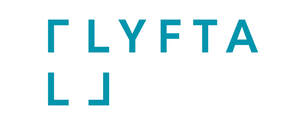 Lyfta gives teachers the opportunity to nurture the whole child, build character and embed values, including resilience and service. 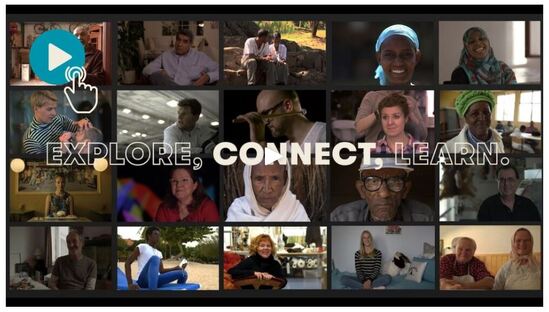 Its immersive platform can help you to embed positive values in your classroom and equip your students for the future through its world of positive human stories. Each story has its own 360 degree environments, unique soundscapes and powerful short films to immerse students fully in a world beyond their own. Students meet with individuals from communities across the globe, connect with their inspiring stories, and reflect on their values. Our Kids’ Cup storyworld, which features the journeys of five young people competing in an international children’s football tournament, is one of many that helps teachers introduce values including perseverance, resilience and leadership to students. Independent research conducted by the University of Tampere has also shown that Lyfta’s immersive human stories help students to develop empathy and understanding for those who are different from themselves. By Anna Szpakowska, Lyfta Professional Development Lead Explore Lyfta for FREE when you register for the Lyfta starter, no-obligation trial. 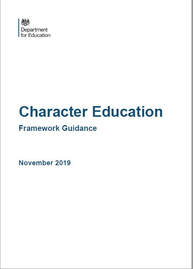 You may wish to explore the Department of Education’s Character Education Framework Guidance. Whilst it is not mandatory, it provides a possible starting point for schools considering how they embed character education into their curriculum and wider school life. The countdown has begun for the Men’s Football World Cup 2022. As excitement grows about the competition, teachers can leverage this exciting opportunity to harness the power of sport to nurture positive values in the classroom. Join Lyfta for a FREE live lesson, delivered by their team beamed directly into your classroom via Zoom.
Your students will enjoy an immersive story from the Lyfta Kids' Cup series as a collective experience with other schools across the UK. Sessions are running on: Wednesday 30 November 2022 at 1130 and 1415 Friday 2 December 2022 at 1130 and 1415 (with separate sessions available for older and younger learners). No preparation or account is required. Simply sign-up and join via the Zoom link on the day. To find out more and secure your place click on the link below. Lyfta looks forward to sharing a powerful storyworld experience with your class. 27/9/2022 0 Comments Sustainability Support for SchoolsFind out more about our sponsor Computeam's work to support sustainability with IT that lowers schools’ energy costs, CO2 emissions and drives sustainability. That’s why they're thoughtful about the partners they work with.
For example, Computeam supply laptops and Chromebooks from Acer because they have one of the best sustainability programmes as a technology manufacturer. For example, 80% of an Acer Vero laptop is composed of recycled Ocean bound plastics. Acer also offer 70% reduction in carbon emissions from an average mixed environment of desktops and laptops. Working with PX3, a team of scientists providing sustainability assessments to a wide range of customers and via PhD research, in partnership with the University and Business School of Warwick; PX3 found an 84% reduction in CO2 emissions across a typical legacy estate of Windows desktops when using Acer. Coupled with cashback incentives via Acer’s Green Rewards; an overall Trust-wide user device strategy from Computeam can significantly reduce both operational and capital costs. So what are Acer’s Green Rewards? Put simply; you get a valuation of your old energy-zapping kit, purchase new devices, make a claim, have your old devices collected and then receive your cash reward! In five easy steps you’ve offset some of the cost of newer, energy saving devices and helped to lower your carbon footprint whilst doing your bit for sustainability. Given the targets for all Government Departments to ensure sustainability and decrease carbon dioxide emissions; including the Department for Education (DfE); it is no surprise that large scale projects funded by the DfE seek to push Schools and MATs to declare carbon offsetting. How will your School account for this should it be required? Yet, it's not only user devices. Large scale infrastructure projects, such as replacing whole Networks and Switches can incur huge costs. Through Computeam's partnership with Aruba-HPE, you can benefit from 0% interest loans directly from Aruba-HPE and even a ‘buy back’ of legacy kit, reducing cost and saving you money. Speak to a member of the Computeam Team who will assess your wireless network and advise on moving to a mobile device strategy that will reduce the number of energy-draining switches and the demand on your electricity bills. As a Cloud First provider; Computeam look to replace energy-zapping Servers with all the associated costs of maintenance and possible failure, with a cost-save Cloud solution. Assuming a server utilises 136 watts at 100% efficiency, did you know that keeping a server operating 24/7, 365 days of the year - assuming a cost of 35p per kWh for electricity - will cost you £4,169.76 per annum! The older the server, the less efficient it will be and costlier to run! Now consider schools running two or more servers... So, schools are invited to speak to Computeam about a move to the Cloud that makes sense. But what about Computeam's credentials pledge regarding sustainability? Like Acer, Computeam are in partnership with Ecologi who plant trees (whole forests actually) that ensures a lower carbon footprint of all employees both at work and in their day-to-day private lives! For the last 14 months Computeam have reduced 617 tonnes and planted 8,673 trees; supporting 21 projects to generate new carbon-zapping forests! See more information here Contact Email or call Computeam directly to discuss any aspect of your IT requirements and how they can help you to save costs. Paragraph 221 of "Keeping Children Safe in Education (2022) states that: “schools and colleges should consider carrying out an online search as part of their due diligence on the shortlisted candidates. This may help identify any incidents or issues that have happened, and are publicly available online, which the school or college might want to explore with the applicant at interview.” Our sponsor, SchoolPro TLC works with schools to provide specialist expertise and explains what this means for schools. Consider the Purpose of this Processing In this case, it is part of your recruitment process so any data that you collect or process as part of this, should only be used for that purpose. Lawful Basis Make sure you know what lawful basis you are using for this processing. As this is being proposed within statutory legislation (i.e. KCSIE 2022), the lawful bases that apply are likely to be Article 6(c) legal obligation or Article 6(e) public task. In this case, Article 6(e) would seem to be the most appropriate if you are a state school. If you are a private school, Article 6(c) would be relevant here. Actual Data Consider what actual data you are going to be processing. Are you going to be keeping any results from these online searches? If so, what? And for how long? And how are you going to keep the data secure? This essentially covers a number of the principles of the UK GDPR such as data minimisation, storage limitation, and integrity and confidentiality. Retention In terms of retention, use your retention schedule (refer to the IRMS Toolkit or similar) to identify how long you might consider keeping any relevant data from the searches. Make sure this is proportionate to the purpose. For most checks, you might record in your SCR that the check was conducted. For others, you may want to keep the evidence in case of a challenge before securely destroying it. Consider Transparency Your job applicant privacy notice should make it clear that this data is going to be processed and explain some of the points above. You should also consider a statement on your application form. Job Applicant Privacy Notice Template
An updated job applicant privacy notice template is available on the SchoolPro portal (in Global Documents). Contact For more information or if you have any questions, you can contact SchoolPro TLC. Towergate Insurance, one of our sponsors, provides an insight into health and wellbeing support as one of the major factors in the recruitment and retention of talent. In a significant survey* of 500 decision makers in the UK, undertaken for our sister company Towergate Health & Protection, 42% stated their support for the health and wellbeing of staff is a key reason people stay with their employers. In addition, 31% said health and wellbeing support is a key reason people choose to work for them. The research supports our anecdotal evidence of the wider reaches of health and wellbeing support, and why it is so important that employers have a clear and well-communicated strategy. The wider the health and wellbeing support offered, the better the array of talent it will attract and retain. On the flipside, nearly one in five (18%) employers stated that not offering enough health and wellbeing support impacts their ability to recruit and retain people: a stark warning for all. Health and Wellbeing Support for health in general was viewed by 42% of employers to have increased the most in importance for enhancing the recruitment and retention of talent. 26% percent of employers said support for mental health had increased most in importance, and 19% said it was the overall health and wellbeing package that had grown most in terms of priorities. Social interaction through work (11%), communication of support offered (9%), support for financial health (9%), and an environmental, social and governance (ESG) strategy (8%), were also identified as increasing in importance. So, the support offered needs to be wide and holistic. Implementing a Strong Health and Wellbeing Programme According to the survey results, and evidence seen by Towergate Health & Protection across its client base, implementing a strong health and wellbeing programme is vital in the recruitment and retention of talent. Moreover, the programme must be widely communicated to employees and easily accessed and managed by employees and employers alike if it is really going to make a difference. The Four Pillars of Health and Wellbeing A strong programme must support all four pillars of health and wellbeing: emotional, physical, financial, and social health - to add the most value to recruitment and retention. Research shows that all four are not only important in keep existing employees healthy, and to retain their loyalty, but also to attract new employees. Employees’ needs and demands have shifted dramatically since before the pandemic struck. We have all had a realignment of priorities, and employers need to match these if they are to attract and retain the best staff, which is only going to become more important. *Research conducted by Opinium on behalf of Towergate Health & Protection. Sample: 500 UK HR decision makers. Field dates: 28 January to 7 February 2022. Contact To find out how Towergate could assist your school in finding the right employee benefits for your staff, contact Adrian Henley. Towergate Insurance, is a trading name of Advisory Insurance Brokers Limited. Registered in England Company No. 4043759, Registered Office: 2 Minster Court, Mincing Lane, London, EC3R 7PD. Authorised and regulated by the Financial Conduct Authority. This can be checked on the FCA’s register by checking the FCA website at www.fca.org.uk/register or by contacting them on 0800 111 6768. Towergate Health & Protection, a trading name of Health and Protection Solutions Limited, is an independent intermediary, authorised and regulated by the Financial Conduct Authority (FCA). This can be checked on the FCA’s website or by calling them on 0800 111 6768 (freephone). Not all products and services offered are regulated by the FCA. Registered in England and Wales No: 4907859. Registered office: West Park House, 23 Cumberland Place, Southampton, SO15 2BB. We recently saw the release of the Government’s response to their consultation on the proposed Data Reform Bill. It is still early days for the proposed legislation and there is a lot to go through from this response. In addition, the timeline for the new legislation and exactly what it will look like based on this response is unclear at this stage. But our sponsor, SchoolPro TLC, has looked at the consultation outcome and you can read their initial reaction and thoughts about how it might impact on working with schools in the future. Privacy Management Programmes to be a Compliance Requirement This is one that we have been expecting and we have built the online audit/accountability tool in the new portal with this possibility in mind. Essentially, the proposal is to reduce down the accountability requirement to the following six key areas (from the current ten):
This potentially simplifies the process and our audit tool has been developed to be fully configurable. So, if this change goes ahead as suggested, the existing tool can be adapted to the new Privacy Management Programme and relevant information, actions etc already in the tool, can be ported across as required. The Government have been keen to highlight that this is not to reduce the rigour of accountability and lower standards, but to create a more flexible tool that can scale depending on the risk level of the organisations. This may well ease some of the burden on smaller schools, for example. Data Protection Officers (DPO) to no longer be mandatory and to be replaced with a ‘senior responsible individual’ This proposal removes the need for an independent DPO with no conflicts of interest and allows the role to be taken on by a senior individual within the organisation. That person will still fulfil many of the existing roles of a DPO, so it is likely that many organisations will simply continue with their existing arrangement. The ‘senior responsible individual’ will be responsible for:
At present, it is not fully clear if this will apply to all organisations; or whether it will be only small organisations and those that do not process high levels of sensitive data that are able to drop the requirement for a “DPO”. We are obviously going to keep a keen eye on this one! Removal of Data Protection Impact Assessments (DPIAs) The thought here is to provide a more flexible and tailored approach to organisations. Again, the Government are keen to emphasise that this is not to reduce rigour and lower standards and they state that organisations will still have to identify, assess and manage risk. This may allow for a more risk-based approach where lower risk processing has a simpler risk management approach and higher risk processing still follows a similar DPIA process to what is currently in place. However this is implemented; thankfully, this should not involve new risk management for legacy systems as the Government has stated that “existing DPIAs would remain valid as a way of achieving the new requirement. Removal of the Record of Processing Activities (RoPA) Requirement As with DPIAs, this is to provide a more flexible approach that can be tailored to different organisation depending on size and the nature of their processing activities. This will link to the Privacy Management Programmes and will require organisations to have “personal data inventories” that “describe what and where personal data is held, why it has been collected and how sensitive it is.” From what we have read so far, we believe that our existing data mapping tool will allow for these inventories to be created still with very little need to be adapted from their current format. Those are a few of the points we think will have an immediate impact on schools. Of course there are more detailed analyses of all the proposals available online, such as this useful one from the IAPP: It is also clear that not everyone is happy with the proposals.
Reading through the response, the prevailing theme appears to be “we asked about this, most of you weren’t happy with proposed changes… so we’re going to make some anyway;” which is an interesting approach to a consultation. All we can say is, watch this space… Report by Ben Craig CIPP/E, Director of SchoolPro TLC Ltd  The Met Office has warned that temperatures could hit 43C over the coming week, which would make it the hottest day ever recorded in the UK. Our sponsor, Wolferstans Solicitors, provides some guidance for employers as summer temperatures soar. If it’s too hot to work, can employee’s leave? Under UK law there is currently only a minimum working temperature set, which is 16C. However, if the employee’s work involves rigorous physical effort, the temperature should be at least 13C. There is unfortunately, no meaningful figure that can be placed on high temperatures, to indicate if it is in fact too hot to work. That said, employers are responsible to ensure their employees and workers are comfortable and in their working environment. This extends to helping them keep cool. Health and safety should also factor into an employer’s consideration as to whether it is too hot to work. Can employee’s legally ask for air conditioning in their workplace? Employers are obliged to keep employees comfortable, which falls within them needing to ensure the working environment is of a reasonable temperature for those using it. From this, the concept known as "thermal comfort" has been established. By managing the thermal comfort within the workplace employers are more likely to improve morale, productivity and health and safety. The Health and Safety Executive note the six basic factors to cause temperature discomfort are:
A way in which they suggest you can control the thermal comfort of these factors is by using air conditioning units or air dehumidifiers. If you want further advice on whether you should be installing air conditioning, as you feel are having employee complaints about the temperature in the workplace, then please get in contact via the below contact details. Do employees have to wear their usual work attire in sweltering heat? This very much depends on the organisation. For example, if you are employing tree surgeons you would not be complying with the health and safety laws and organisational policies if you allowed you employees to not wear their personal protective equipment, such as the thick heavy chainsaw trousers which they most likely do not wish to be wearing on an extremely hot day. In circumstances where it is reasonable for there to be a flexible dress code, such as in an office environment, employers should be doing this to help with employee’s thermal comfort and productivity. If in doubt whether this applies to you, the Health and Safety Executive provide further information on this. How else can employers ensure that "thermal comfort" is managed well? Hybrid working is becoming increasingly popular and making the most of this on an extremely hot day could benefit employers and employees. Employers need to consider whether the building they have is equipped for a heatwave. In doing this they should factor in whether there is a lot of glass, if it is an older building, whether there is good ventilation, and whether or not they already have air conditioning installed. Employee productivity could be higher, should they be allowed to work from home in a cooler environment. If this is not possible then employers need to control the thermal comfort of their employees in the workplace as best as they can, given their circumstances. Ways to do this is by providing fans, if safe to do so, in the event they do not have aircon. If you have any concerns over your workplace, or employees refusing to attend work during the heatwave, please make contact via our new enquiries section of the website. By Rachel Lee, Wolferstans Solicitors 11/7/2022 0 Comments Can forcing the use of transgender preferred pronouns amount to discrimination?In short, it will depend on the facts!
Let Wolferstans solicitors, one of our sponsors, guide you on this potential discrimination issue. Wolferstans provide a wide range of legal services to meet the needs of individuals, families, SME’s, public sector and voluntary organisations based throughout Devon and Cornwall. Background In the case of Mackereth v (1) Department for Work and Pensions (“DWP”) and (2) Advanced Personnel Management Group (UK) Ltd, the question of whether it was discrimination to refuse to use the preferred pronouns of transgender clients was deliberated. The Claimant was a Christian doctor and provided health and disability assessments for the DWP. Early in his career, he stated that due to his religious beliefs, he would not use the preferred pronouns of any transgender clients; however, this was in contradiction to the DWP’s policies, which stated that those undergoing transition should be referred to by their presented and preferred gender at all times. Clearly the Claimant was going to be in breach of this policy, so decided to resign and bring a claim in the Employment Tribunal. Christianity, as a religion, is a protected characteristic, but this was not the issue in this case; rather it was whether he could demonstrate that his beliefs that a person cannot change their sex/gender, that it would be irresponsible for a health professional to encourage transgenderism and his lack of belief in transgenderism generally could amount to direct discrimination, harassment and indirect discrimination. Ruling The Employment Tribunal held that the Claimant’s beliefs did not amount to protection under the Equality Act, and further, even if they had done, he had not suffered any less favourable treatment/harassment. Further, the DWP’s policies were justified and were necessary and proportionate in meeting their legitimate aim of ensuring that transgender clients were not discriminated against and were treated with dignity and respect. The Claimant was clearly not happy with the decision and appealed to the Employment Appeal Tribunal. Unfortunately for him, the EAT agreed with the initial decision, finding that he had not been subject to discrimination. Although, the EAT did point out that some of his beliefs would qualify for protection under the Equality Act. How does this impact employers? One reason that the Claimant’s claim failed was that his employer had tried to accommodate his beliefs, but he had resigned before they were able to implement any strategies and adjustments. Employers should ensure that if they require employees to use certain terms when dealing with transgender clients, the requirement is proportionate to achieving a legitimate aim, for example treating those clients with respect and promoting equal opportunities. If you would like any further advice, or would like us to review any policies then please get in touch with a member of the team on 01752 663295. It is undisputable that accounting for all staff, students and visitors in a timely manner is critical to the success of a fire evacuation.
To ensure the safety of students during an emergency schools must have an effective evacuation plan in place, that is simple enough to follow for all staff and students. During an evacuation, it is important to know exactly who is on your premises to ensure all pupils, visitors and members of staff are located for. Often schools track this information through spreadsheets or paper documents; however, ensuring these documents are up-to-date can be difficult to manage. An effective way to overcome this concern is to look at alternative methods that can provide live data for who is currently on site, with the ability to pull one report that can be easily accessed by all teachers. In the event of a drill or fire evacuation, the InVentry Anywhere app allows you to access a real-time copy of everyone who is onsite from any mobile device to improve the efficiency of your evacuation procedure. Find out more with InVentry and understand how you can ensure the safety of students during an emergency – all at the touch of a button. Read here this informative blog from our sponsor Wolferstans Solicitors.
It’s been a while since we mentioned the dreaded Covid-19 pandemic, but the Government has recently announced new guidance for living safely with Covid. The guidance provides information for those with symptoms of respiratory infections, such as Covid-19; people with a positive Covid-19 test and their contacts; and advice on safer behaviours for everyone. Workplace Guidance One of the main changes for employers is that the working safely guidelines for the various sectors has been removed, with employers instead needing to consider the needs of those at a higher risk of serious illness. Employers are encouraged to be aware of Covid symptoms in order to reduce the risk of transmission between employees. If a member of staff has Covid-19 symptoms, then the respiratory infection guidance below should be followed. To limit transmission within a business, employers should ensure that there is adequate ventilation in the workplace, that hygiene facilities are available and that any workspaces are kept clean and sanitised. The requirement to explicitly consider Covid in a risk assessment has been removed, as has the need to inform public health of an outbreak, but employers can still consider it in their assessments should they choose to do so. Previously, employers could reclaim SSP paid due to Covid related absences, but this is now not the case following the closure of the rebate scheme. Employers will need to ensure that they pay employees SSP for Covid absences if they have been absent for at least four days in a row (including non-working days), in line with regular sickness absences. Whilst there is no obligation on someone who has symptoms to refrain from coming to the workplace, the guidance suggests that employers should allow them to work from home where possible, where that is not the case, to look at alternative options. People with Respiratory Infections From 1 April 2022, anyone with symptoms of a respiratory infection, such as Covid, and who have a high temperature or are not feeling well should limit contact with others and stay at home where possible. Anyone who has a positive Covid test result (whether because they chose to carry one out or were asked to) should again try to limit contact with others and stay home for five days following their positive result. As has been the case throughout, anyone that tests positive should refrain from close contact with those who have a reduced immune system and are at risk of serious illness. The guidance in this case is that contact should be avoided with those at a higher risk of serious illness for 10 days. Employees who are at higher risk of serious illness should be taken into account. They should be able to wear a face mask where possible and may need to work from home to reduce their risk, however the requirement for them to shield has been removed. Leaving Home Whilst Positive In a slightly controversial move, those with a positive result will not be forced into isolation and instead, will be able to leave their homes, and continue to go to work, even whilst they have symptoms. However, there is guidance which should be taken into account:
If you would like any further guidance on how Covid-19 might impact you, then please get in contact with a member of the Wolferstans Team on 01752 663295. |
SWIFT News
|
SPONSORED BY
Join us, be a part of our SWIFT community |
© COPYRIGHT 2022 SOUTH WEST INSTITUTE FOR TEACHING SWIFT. ALL RIGHTS RESERVED | Website by brightblueC
VIEW OUR PRIVACY NOTICES | VIEW OUR COURSE T&CS
VIEW OUR PRIVACY NOTICES | VIEW OUR COURSE T&CS




































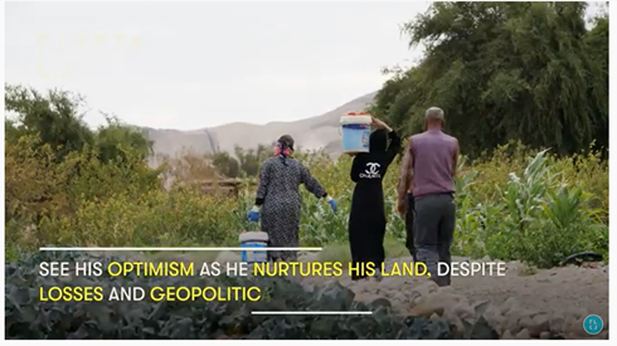

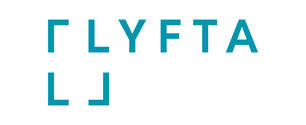


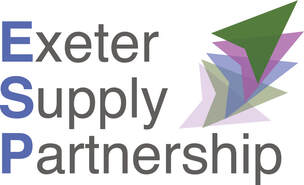


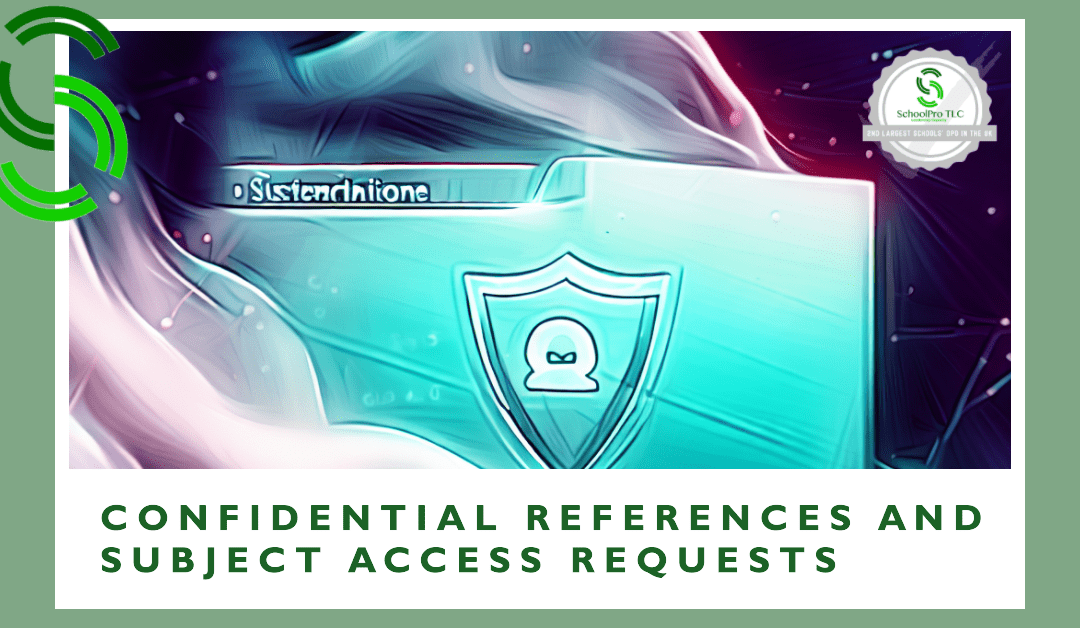


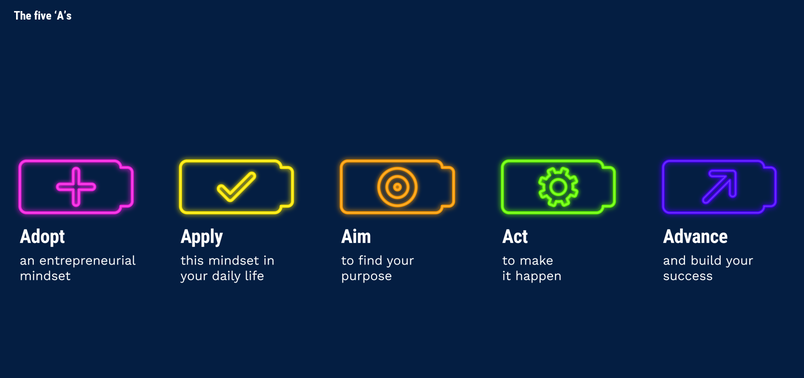





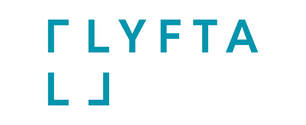

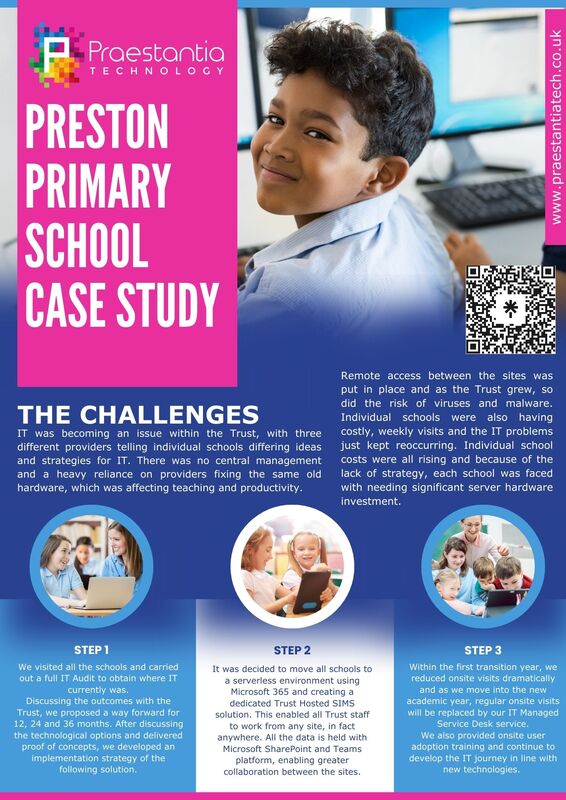

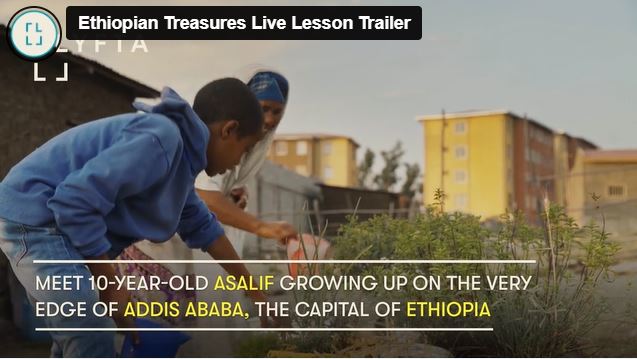
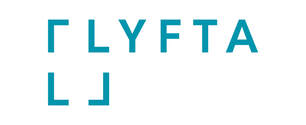


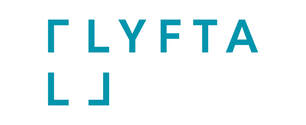




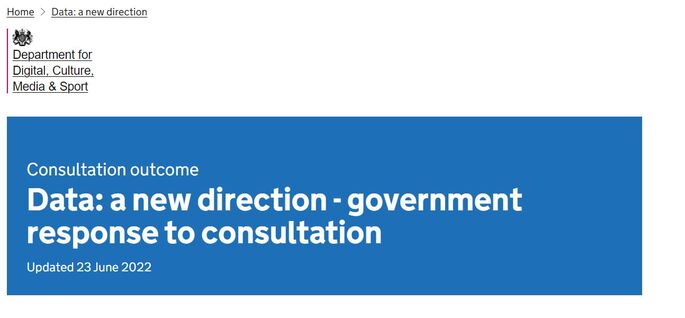
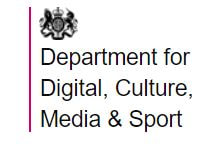





 RSS Feed
RSS Feed





